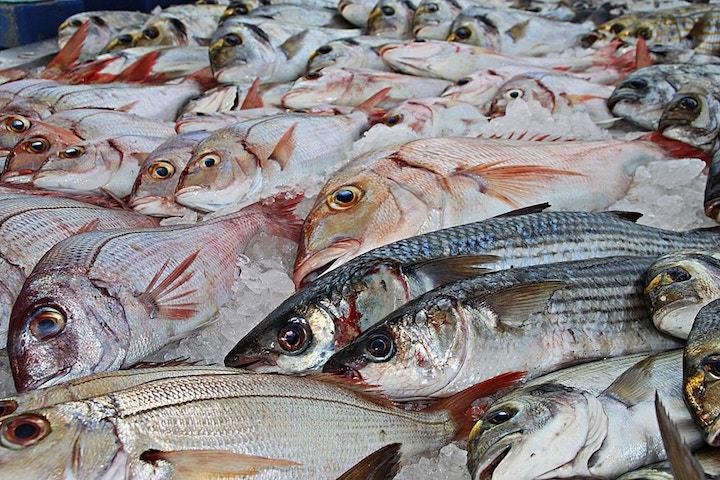In the halcyon days of 2015, leaders gathered at the United Nations pledged “bold and transformative steps” to put the planet on a more sustainable path, tasking the World Trade Organization with ending excessive and illegal fishing.
Five years and a global pandemic later, that dream has been deferred yet again.

A global fisheries deal fell victim to issues ranging from the logistical problems of negotiating amid travel restrictions to a growing distrust among WTO members. It’s a frustrating result not just for protectors of marine life but for defenders of the WTO, denying the organization a win just when its deal-making abilities came under fire.
It’s a “disappointing outcome for the environment and, what’s more, a real blow to the WTO’s credibility,” said John Denton, the secretary-general of the International Chamber of Commerce, a Paris-based business group. “Members just need to get this deal done if they are serious about restoring confidence in global trade law and the ability of the WTO to write new rules fit for the 21st century.”
Depleted Fish Stocks
The talks—which have been ongoing for more than a decade—reached a new urgency in recent years as the world’s fish populations have steadily fallen below sustainable levels.
The UN Food and Agriculture Organization has warned that the state of the world’s fish stocks is “poor and deteriorating.” A key aspect of the problem is the estimated $22 billion that governments provide in fishery subsidies each year.
The vast majority of these subsidies support large-scale fishing operations, which discriminate against smaller ones and ultimately undermine food security and livelihoods in poorer coastal communities.
Pandemic Disruptions
The Covid-19 pandemic dealt a major blow to WTO’s effort to forge a fisheries deal because it quickly redirected governments’ attention toward addressing the immediate health and economic impacts on their citizens.
In Geneva, trade delegates lost crucial time when Swiss health officials banned large meetings in March, which resulted in an extended period of inaction. Though trade officials eventually switched to virtual negotiations, the health crisis hurt the momentum of the talks.
Compounding those logistical barriers was the WTO’s decision to postpone its June ministerial meeting, where trade ministers convene every two years to hammer out important deals.
Then the WTO’s former director-general, Roberto Azevedo, unexpectedly stepped down in May and left the organization without a leader to apply the kind of political pressure needed to push for a deal.
Special Treatment Fight
When WTO members were finally able to get back to work, they struggled to bridge the deep divide between major nations about what exceptions should be provided to developing and least-developed WTO members.
On one side, advanced economies like the U.S. and the European Union argued that all nations should eliminate subsidies of fishing activities that are linked to overcapacity and overfishing.
On the other, large developing nations said that their governments should be largely exempt from such prohibitions despite the fact that they collectively account for most of the 96.4 million tons of fish caught each year.
India shocked delegations in March when it introduced a proposal to exempt developing countries, which includes China, from most of the core disciplines under consideration.
The Trump administration refused to support the proposal, arguing that such exemptions would render the prohibition meaningless.
U.S. Election Uncertainty
The final straw was the U.S. presidential election, which left negotiators wondering whether it would be better to negotiate a deal with Trump officials or wait the inauguration of President-elect Joe Biden.
The Trump administration has taken a hard line against China and criticized it for seeking more preferential terms due to its status at the WTO as a developing country.
But Beijing has been unwilling to compromise on this issue and argues that there should be a broad exemption for China—the world’s largest fish producer—to subsidize fishing on the oceans.
“For China, high-seas fishing is very important to the nutrition of 1.4 billion people,” Chinese WTO Ambassador Zhang Xiangchen said earlier this year. “A blanket ban on subsidies for high-seas fishing is beyond our mandate and unreasonable by itself.”
The next steps are unclear because of the uncertainty caused by Covid-19, the lack of a WTO leader and the change in the U.S. administration.
On Monday, the chair of the negotiations, Santiago Wills of Colombia, will present his report on the state of the talks to the WTO heads of delegations.
Ideally, WTO delegates will continue their negotiations in the new year with the goal of developing the terms of a possible deal ahead of the WTO’s next ministerial conference, which was set to take place in Kazakhstan in June but has not yet been rescheduled.





_-_127500_-_1da204f56eddee4a9ff1d6f8fe7f7f4e89a54723_lqip.jpg)



